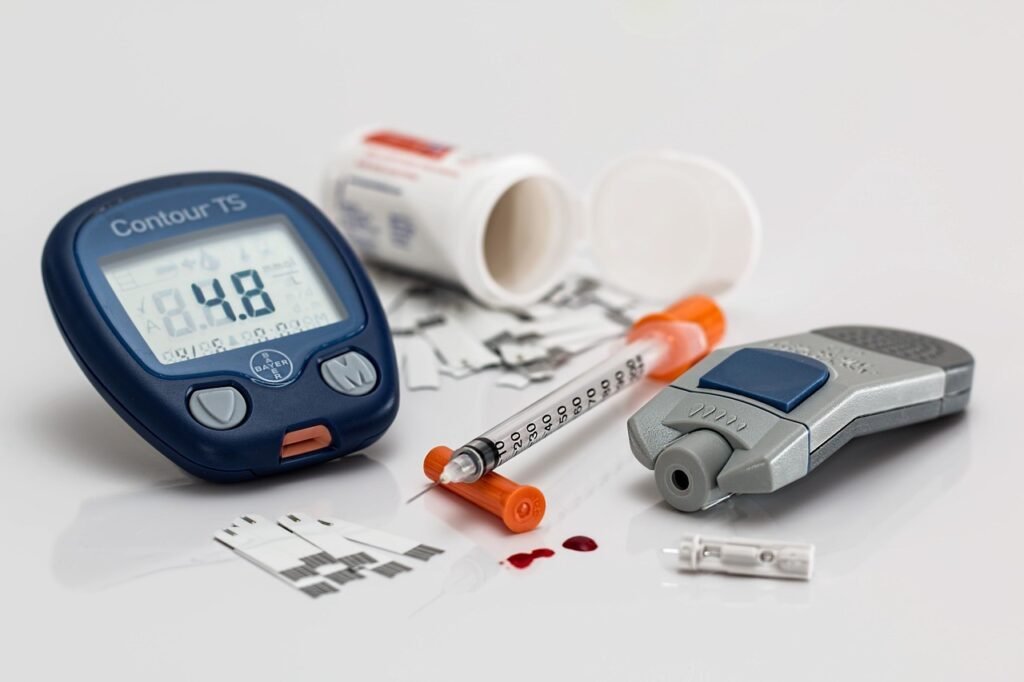5 Reasons Why Elisa Kits Are Essential In Medical Research

5 Reasons Why Elisa Kits Are Essential In Medical Research
Diagnostics are at the forefront and center of healthcare, be it cancer, diabetes, infectious diseases, or major health risks. Diagnostics let doctors and nurses get the exact information they need to find diseases early, stop them, and keep an eye on them. In addition, accurate diagnoses are necessary for developing and enforcing effective treatment plans, critical components of improving patient care.
Even so, diagnostics should be taken more seriously, and many healthcare systems worldwide need to learn how essential diagnostics are and how to use them.
Nevertheless, scientists regard ELISA as the immunoassay method to be the gold standard. ELISA-based tests can aid in diagnosing numerous conditions, including bacterial and viral infections.
This guide will discuss why Elisa kits are essential in medical research.
What exactly is an ELISA kit?

An enzyme-linked immunosorbent assay, commonly known as an EIA or ELISA, is a test that identifies and evaluates the levels of antibodies in the blood. The purpose of this test is to detect whether or not you have antibodies that are associated with a particular infectious disorder. Antibodies are proteins your body produces in reaction to potentially harmful chemicals known as antigens.
Hence, Elisa kits are diagnostic tools frequently employed in a laboratory on a blood or urine sample, and they use both the specificity of antibody tests and the sensitivity of enzyme assays. It’s a method for identifying and measuring biological substances like proteins, peptides, hormones, and antibodies.
It’s possible to use an ELISA test to identify:
- AIDS-causing virus, or HIV
- Lyme disease
- chronic anemia
- Flavivirus of the Rocky Mountains
- Rotavirus
- Cancer of the squamous cells
- Syphilis
- toxoplasmosis
- varicella-zoster virus (the causative agent of Shingles and chickenpox)
- Zika virus
ELISA is frequently used as a preliminary test before more comprehensive analyses are performed. Any test subjects experiencing symptoms of the conditions above may require this examination. Also, if a doctor wants to exclude these illnesses, they may request this test.
ELISA can be performed in three ways: Double Antibody Sandwich ELISA, Indirect ELISA, and Competitive ELISA. These have many uses in forensics, culinary science, and clinical research.
Learn more about ELISA kits and their varied applications in medical research by reading on.
Screening of Different Conditions
Developing and researching cancer biomarker identification for early cancer detection continues to elude medical researchers. It is possible to test for early-stage malignancies, such as ovarian and breast cancer, using ELISA-based approaches.
Additionally, ELISA can be used to assess the levels of illegal substances in urine samples, including cannabinoids, amphetamines, opiates, cocaine, benzodiazepines, and methadone. The technique may be employed to track the amounts of pharmaceutical drugs in individuals receiving treatment, such as anti-drug antibodies in rheumatoid arthritis and patients with inflammatory bowel disease.
Also, the hormone human chorionic gonadotrophin (hCG), which is more significant in pregnant women, is routinely detected in urine using the ELISA test, making it accessible and convenient for at-home testing.
Studying Several Biological Molecules

It can detect a wide range of biological substances at incredibly low concentrations. Although it has several drawbacks, ELISA is nonetheless a vital instrument for fundamental studies and has revolutionized the field of biomedical research during the previous decades.
The following are some of the applications of ELISA available in biomedical research:
- Quantifying Proteins:
ELISA is often used to determine the concentration of a particular protein in a specimen. This can show how proteins are expressed and controlled in different tissues and cells.
- Immune system analysis
The enzyme-linked immunosorbent assay, or ELISA, detects and quantifies antibodies in biological materials like serum or plasma. By doing so, we can learn how the immune system responds to vaccines and other bio-defenses.
- Discovery of drugs:
The enzyme-linked immunosorbent assay (ELISA) can test several substances’ affinity for a target protein. This aids in the selection of promising therapeutic leads for further study.
- The discovery of biomarkers:
Biomarkers are substances that can be used to detect disease and track its development or severity. This can help doctors find and measure biomarkers that can be used to analyze health and manage medical conditions.
Environmental Monitoring
The following is a list of specific applications of ELISA in the field of environmental monitoring:
- Water quality analysis
Pesticides, fertilizers, and heavy metals, which are all bad for you, can be found in water with the help of ELISA. It can also detect harmful microorganisms like E. coli and other germs in water supplies used for human consumption or recreational activities.
- Tracking of air pollution
Benzene, toluene, and xylene are only some air pollutants that can be detected with ELISA. These pollutants are discharged into the atmosphere as a byproduct of industrial activities and vehicular traffic.
- Soil testing
The ELISA can pinpoint the amount of impurities in the soil, including heavy metals and pesticides, that are potentially hazardous to the health of both plants and animals. It is also helpful in detecting soil microbes, like anthrax spores.
- Industrial process evaluation

ELISA can monitor industrial processes for the presence of toxic compounds, such as solvents and heavy metals, which can potentially be released into the surrounding environment.
Food Intolerance
To comply with legal requirements for providing allergy warnings, ELISA is commonly employed in the food sector to identify an outbreak of allergens. Because of the high sensitivity of ELISA, even trace amounts of pollutants that could trigger food allergies can be determined. Also, unlike procedures like polymerase chain reaction (PCR), this approach can identify oils and other things like egg whites and milk.
Measurement of cytokines
ELISA can measure cytokines as well as other immune system proteins. Some examples of these proteins are tumor necrosis factors, interferons, and interleukins.
Wrapping up
Given these benefits, ELISA kits have become the biotech instrument of choice for various research and the medical field. It can be used in the clinic to diagnose disorders and in the lab for study.
However, you must remember that an ELISA test may not be a conclusive diagnosis, regardless of your reason for performing one. In other words, a negative result from an ELISA test may not indicate a significant health problem. If a doctor receives an abnormal result, they will consider several factors and probably request more testing.






